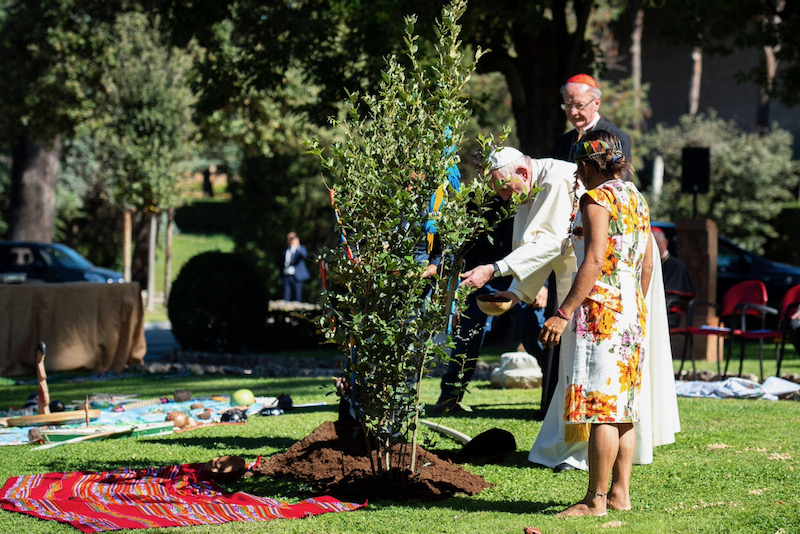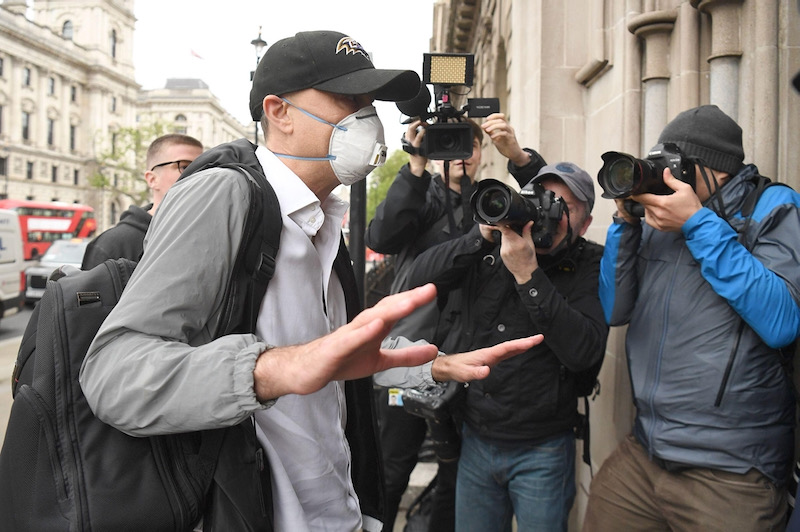What the British Government needs is a slice of Emmental cheese. In fact several slices. Swiss cheese has holes in it, but usually no two slices are the same. What it also needs is a “safety culture”, also sometimes called a “just culture”, as used in the aviation industry worldwide and increasingly in the practice of medicine. This is the right answer to Dominic Cummings. It was invented, incidentally, in Britain. It has doubtless saved many lives.
Something went badly wrong in the initial response of Boris Johnson's Government at the start of the Covid-19 pandemic more than a year ago. Even the Daily Telegraph, scathing about Cummings’ display before joint House of Commons select committees, could not deny that what went on was a “shambles”.
Swiss cheese theory first. Lay one slice upon another. A few of the holes may overlap, but there is a good chance one hole in one slice will be covered by solid cheese in another. If the holes happen to coincide, however, chances are that a third slice will block the hole in the other two. And so on, with increasingly likelihood that any wondering fly trying to get from one side of the cheese to the other will find its way blocked.
Each slice represents a feature of a complex operational structure designed to spot and correct relatively small mistakes. Air traffic control tells a pilot: “Climb to flight level 350”. He reads back: “Climb to flight level 390,” nine and five being easily confused, which is why pilots generally say “niner”, and adjusts the aircraft controls accordingly. The mistake has passed through the hole in the first piece of cheese. ATC spots the mistakes, however – the read-back procedure is the second slice – and alerts the pilot, who then repeats back the correct altitude and readjusts the controls. The third slice.
But suppose at that precise moment he is distracted by an anomaly in one of the measurement data that pilots regularly monitor, and does not immediately realise his mistake. In other words it has passed through a hole in the third piece of cheese. Fortunately the co-pilot, nowadays known as “pilot monitoring” (PM) also spots the mistake made by the pilot in control (“pilot flying” or PF) and says so, as he is duty bound to do. The PM/PF designation is role-specific rather than seniority specific, to overcome the problems of an authority gradient in the cockpit. Accidents have been caused when junior co-pilots noticed mistakes made by their much more senior captains in command, but failed to take remedial action. Like many things in aviation, this all dates back to the horrific Tenerife disaster in 1977, when two jumbos collided on the same runway in fog. So the PF/PM system is yet another layer of Swiss cheese.
And if this is not enough, after take-off there is a fifth layer. ATC is watching the flight on radar and will quickly notice that the aircraft is climbing to FL390, where it is not supposed to be. Indeed, other aircraft nearby may be flying at that altitude, raising the risk of a collision. And then if all this fails, modern jet aircraft carry airborne collision avoidance systems (ACAS) which divert them from any collision risk that they detect – a sixth layer of cheese.
When the coronavirus reached British shores in January 2020, staff at Downing Street assumed the Department of Health and Social Care had a plan for dealing with it. The department also assumed that in some office drawer or on some office shelf, such a document did exist. But they searched, and found nothing. They probably assumed – or hoped – that it was in the Cabinet Office or the civil contingencies department at the Home Office. It wasn’t. This was the point, as Cummings delicately put it, when they realised they were “f****d”. All the holes in the pieces of cheese had lined up.
The best the Government could improvise was an instruction that elderly patients should be discharged from hospital into residential homes, known with tragic irony as “care homes”, regardless of whether they were infected with Covid or not. It was a death sentence for many frail old people who were likely to be infected by the disease and were not strong enough to resist it. They expected the Government to protect them. It didn't.
So now the blame game starts. The Secretary of State for Health and Social Care, Matt Hancock, was a liar, said Cummings, and Boris Johnson was not fit to be Prime Minister. But if Cummings, as Johnson's chief adviser and right-hand-man, was the most powerful person in Government, surely a major part of the blame must lie with him. Can his words be trusted?
There is what is called in the aviation industry a “just culture” or “safety culture”, at the heart of which is a system for the confidential self-reporting of mistakes, called “mandatory occurrence reporting” (MOR). If something happens which could threaten aircraft safety, say an aircraft climbs to 39,000 feet when it should have been at 35,000 feet, those who know about it have an obligation to report it immediately to the air regulation authorities such as, in the UK’s case, the Civil Aviation Authority.
A full investigation takes place, with evidence taken from anyone who knows anything about the incident; radar plots are examined, voice recordings played back, all in aid of finding out what went wrong so that it does not happen again. Except in the most egregious cases, say where a crime was committed, the investigation carefully avoids the language of blame. Reports are anonymised; nobody is identified.
Something similar happens when two planes come too close to one another – an “airprox”, or in layman’s terms, a “near-miss”. This is the so-called just culture, which relies on self reporting in a climate where finger pointing is avoided. Because those who made the mistake do not fear the sack there are no penalties under this system, though a degree of retraining might be required if that is where the mistake originated. “What went wrong?” is the question, not “Who is to blame?” “How do we correct it?” not “Who do we fire?”
Perhaps every minister should have a monitor sitting beside him, to point out mistakes. One conclusion that could easily be drawn form the coronavirus fiasco is that government in a crisis such as this is actually too difficult for mere human beings, and they are bound to make mistakes with the best will in the world. But the answer is not to make Microsoft founder Bill Gates Prime Minister, as Cummings sort of suggested. He would make mistakes too. It is to give Government a safety culture, so it becomes self-correcting.
Unfortunately the debate about events surrounding the Covid pandemic and the Governments response to it is taking place in the fiercely adversarial cockpit that British party politics has become, with blame the central issue. Dominic Cummings might have spent his time in Government better had he used it to design safety mechanisms which would pick up mistakes, with various layers of Swiss cheese in place to catch those which got away. Government processes and policies need constant auditing against every eventuality, which one might call “what-if” stress testing.
Not just Government either. If the construction industry had anything remotely as good as the aviation industry’s safety culture, mistakes would have been picked up as they happened and the Grenfell Tower disaster would have been prevented. Where people’s lives are at stake, blame is too clumsy a tool to rely on; and is too easily deflected – as we are seeing.



 Loading ...
Loading ...
What do you think?
You can post as a subscriber user ...
User comments (0)